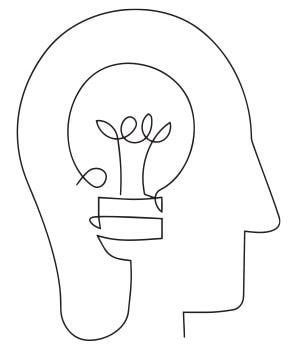Artificial Intelligence in Supply Chain Management: What’s One Human Capability AI Can’t Match?

Are there limits to what artificial intelligence can achieve in supply chain management? Readers share the uniquely human skills that AI can’t yet (or ever?) replicate.
Genuine compassion for a potential shipper/carrier’s needs. That is extremely important in logistics. We can quote, ship, and lead all day but compassion is a big one. We are human and want to be treated as such.
–Debra Smith
Freight Broker
Dee Dee Logistics
Crisis management. The Baltimore Bridge collapse left supply chain leaders in disarray as they had to quickly assess the situation, develop a new plan, and prioritize their mitigation needs. AI may never match the capabilities of humans in such situations.
–Anna Lo
Vice President, Supply Chain & Business Excellence
Cirba Solutions
Nuance. AI can never replace the nuanced communications between the front line and the broader supply chain team. This requires a human’s unique ability to build meaningful connections, listen with empathy to concerns, discuss new ideas, and provide constructive feedback.
–Sean Nolan
Founder and CEO
Blink
Creativity. While AI can generate solutions based on patterns and data analysis, it lacks the ability to think outside the box and come up with truly innovative ideas. Creative problem-solving involves intuition, imagination, and contextual understanding—areas where AI falls short compared to human cognition.
–Vlad Kadurin
Chief Product and Operations Officer
Ship.Cars
Levity. The ability to make light of the situation to take the pressure off the team.
–Tom Moore
CEO and Founder
ProvisionAi
Empathy

AI cannot process human emotions and make genuine connections. This makes empathy a uniquely human capability in supply chain management. It underpins the foundation for building robust relationships, guides ethical decision-making, and helps in navigating the multifaceted challenges that are intrinsically human.
–Nishith Rastogi
Founder and CEO
Locus.sh
Empathy plays a crucial role in building and maintaining strong relationships with stakeholders in supply chain management. AI may never be able to replicate the human ability to connect and understand on an emotional level.
–Sreenivas Vemulapalli
Vice President, Engineering
Bridgenext
I vetted this with ChatGPT; here’s the response: One human capability that AI may never fully match is empathy. While AI can simulate understanding and respond to emotional cues, it lacks genuine emotions and personal experiences that underpin true empathy.
–Laura Lee Holmbo
Business Development Director
TradeTrans Corporation
Human capacity for empathy and interaction. AI brings unmatched efficiency and analytical depth. However, it falls short in replicating the nuanced human capacity for empathy and personalized interaction crucial for building trust and adapting services to meet unique customer needs, ensuring reliability in unforeseen situations. The future of logistics lies in harmonizing AI’s capabilities with the irreplaceable human touch, fostering relationships that technology alone cannot cultivate.
–Dennis Moon
COO
Roadie
There is no way to teach a machine to feel and sense what another human being is going through. As we advance in AI technology, the beauty of the human soul and the compassion of the shared human experience is what cannot be replicated through ones and zeros.
–Gene Welsh
Chief Transportation Officer
MODE Global
Synthesizing paradox, which is key to asking questions and setting goals in every real-life, ambiguous context. The best GPS can drive your car, armed with real-time data to get to your destination efficiently. But you’ve got to tell it where to go.
–Fabrizio Fantini
PhD, VP Product Strategy
ToolsGroup
Perspective. AI lacks the ability to accommodate complexities that require ethical and unexpected judgments. Humans can understand the entire perspective, considering external factors that are not yet modeled.
–Anthony Monaghan
GB Industry, Transportation Leader
WTW
Mental and physical adaptability. AI cannot yet replicate humans’ mental and physical adaptability when unexpected scenarios arise. The immediate future holds a balance between AI for efficiency and human oversight and troubleshooting for adaptability.
–Ira Renfrew
Chief Product Officer
Outrider
Emotional intelligence as well as imagination and intuition. This is why humanizing data is key to achieving accuracy, reducing AI hallucinations, and bringing credibility and measurable impact to your AI strategy. AI capabilities are limited without the support of high-quality data and a human-centric approach.
–Emanuela Delgado
Senior Group Vice President of the Revolution
Red Lightning Group
Parts Town
Ingenuity. AI functions best when working in tandem with human ingenuity. While AI excels at complex but predictable tasks, humans are required to handle unexpected situations and variables or when innovation is the key ask.
–Anand Padia
Associate Vice President, Program Management
Trigent Software
Cultivating Relationships
 Relationships are formed by keeping promises and doing what you say you are going to do. From these relationships, trust is earned and with trust, efficiencies are gained.
Relationships are formed by keeping promises and doing what you say you are going to do. From these relationships, trust is earned and with trust, efficiencies are gained.
–Bill McCoy
Chief Operating Officer
Riverstone Logistics
AI can’t replace the human capacity for relationship building. While it can help automate straightforward questions, it may struggle to navigate difficult conversations and interpersonal dynamics that require a nuanced understanding of the situation.
–Seth Frederickson
VP, Product Management
FourKites
Relationship building. AI can’t build relationships and know people as another person can. We know that in our industry it is often relationships that get things done. When we call a contact or that contact calls us, a big can of history is opened that brings intuition, trust, and other good things.
–Danny Schnautz
President
Clark Freight Lines Inc.
Nurturing relationships. AI will play a large role in forecasting, routing and risk management, as a tool that can improve efficiency and strengthen decision-making. But it won’t be able to replace the role humans play in building relationships with suppliers and partners, and in negotiating contract terms. These can be aided by AI-powered information, but will still require a human touch to ultimately be successful.
–Josh Dunham
CEO and Co-Founder
Reveel
Local relationships are an essential part of a smooth-running supply chain. Exceptions are much easier to manage when you have local contacts at ports, ground handlers, warehouses and customs authorities. The potential of AI is enormous but it’s difficult to imagine how AI will supplant these relationships.
–David Stanton
Co-founder
Reelables
Relationship building is the one thing that AI can’t do (yet). Relationships are built over time and require a level of trust between the parties. That trust is usually developed face to face, person to person, by keeping promises. AI can help with automating some of those promises, but the trust is developed by people.
–Gordon Donovan
Global Vice President of Research
SAP Procurement and External Workforce
SAP
Gut feel combines intuition, instinct, education, and the emotional impact of life experiences into one’s decision-making process. Humans can channel personal knowledge and emotions combined with research data (possibly from AI) to make crucial supply chain decisions. Sometimes, a hunch is the best way to make a decision.
–Stephen Dombroski
Director of Consumer Markets
QAD
Intuition. AI cannot replicate the nuanced intuition or knowledge of new upcoming events that humans bring to the table. AI excels in pragmatic use cases such as predicting the next best parts in the cloud-based robotics design process.
–Annie Noel
Chief Operating Officer
Vention
Perceptiveness. Humans can discern subtleties and context AI algorithms may overlook, allowing us to ensure quality control, identify irregularities, and make informed decisions. Human expertise is invaluable during emergencies as we respond with empathy, adaptability, and ethical consideration, which are difficult for AI to comprehend.
–Seratun Jannat
Lead Data Scientist
GEODIS in Americas
Flexibility. Supply chain volatility has become our new normal. The human ability to react in real time and course correct based on new information is imperative to navigating supply chain turbulence for our shippers and carriers.
–Zach Jecklin
Chief Information Officer
Echo Global Logistics
Human touch. While AI has transformative potential for optimizing supply chains, it can’t yet replicate the intangible human touch that’s essential for effectively managing supplier networks and cultivating mutual trust. As AI evolves, its ability to master these critical aspects will determine its future role.
–Lilian Bories
Chief Marketing Officer
TradeBeyond
Judgment
 In many real-world scenarios, there is not a large amount of high-quality data or one clear metric that can encapsulate all of the tradeoffs that need to be made. That is where human judgment is required.
In many real-world scenarios, there is not a large amount of high-quality data or one clear metric that can encapsulate all of the tradeoffs that need to be made. That is where human judgment is required.
–Adam McElhinney
CEO
Uptake
While AI can recognize patterns and automate routine tasks, it lacks the ability to make decisions that require true judgment. In supply chain management, it’s often necessary to navigate ambiguous situations and make tradeoffs between competing priorities. Human decision-makers can consider the broader implications.
–Jeff Durham
CTO
Princeton TMX
Current systems do not discriminate well between accurate and false information; witness ChatGPT presenting fake court precedents or Grok highlighting Middle East warfare where none existed. The ability to gut check and critically evaluate information is currently beyond the machines.
–Joe Adamski
Senior Director
ProcureAbility
Improvisation. Artificial intelligence cannot match the ability of humans to adapt and improvise based on new information. AI will continue to be a helpful tool used to augment human intuition in complex decision-making where emotions, ethics, and context play roles.
–Keith Brereton
Director of Client Solutions
Tecsys
Intuition. This requires a perfect mix of understanding context, relationships, and subtle nuances that are hard to quantify and teach to an AI system.
–Vincent Cellard
VP, Procurement
Flex
Loading and bracing shipments. Not all LTL shipments are palletized and built as 4x4x4 pallets that double stack. While AI might tell you how to best load a trailer, when you have an assortment of freight, such as short and long pallets, long poles, and fragile or loose items, humans will need to load and brace it to ensure stability and that the base freight/boxes can hold what’s loaded on top.
–Eric Warren
Vice President Business Development
Hercules
Human intuition. AI is great at automating tasks and streamlining processes like quickly matching a company with suitable suppliers. AI lacks human intuition that creates personal connections and builds trust—humans are needed to develop deeper, more productive and collaborative partnerships that nurture long-term supplier relationships.
–Kevin Frechette
CEO
Fairmarkit
Capacity to innovate. AI is trained on towering amounts of existing data, but it can only recombine, never imagine. A human has the potential to create unprecedented solutions and envision ideas that no one else has thought of before. An AI can repeat a given task faster than a human, but it’ll never be the first to do that task.
–Bryan Gerber
Founder and CEO
Hara Supply
Ingenuity. While AI efficiently automates data analysis, it cannot match the human capacity for creative, out-of-the-box thinking. In a volatile supply chain, human ingenuity is key for strategies like Trailers as a Service (TaaS). It reinvents traditional leasing, giving fleet managers flexibility to address challenges and maintain uptime. Despite TaaS’s crucial tech, it’s human creativity that shines.
–Ryan Snyder
Senior Director, Supply Chain
Wabash
Human touch is crucial in dealing with the ever-changing nature of supply chains; not just for handling expected issues, but also for managing unexpected problems. Human creativity and problem-solving are paramount and indispensable in terms of adaptability and effectively addressing unforeseen challenges. AI is great when things go well, but it struggles when things don’t go according to plan.
–Tim Dyke
Regional Trade and Logistics Manager
AMMEGA
Prioritization. AI can only do part of the job. Its critical information is processed by humans who can filter it and understand where to focus their efforts to address issues that are identified. For example, AI might be able to expose forced labor—but it’ll be experts on the ground who can assess what has been identified, then work with law enforcement to change the supply chain or find different suppliers.
–Tony Pelli
Practice Director for Security and Resilience
BSI
Original thought, or the “epiphany”—sometimes called creative problem solving. This is the unique human ability to experience a logical steam of creative problem-solving thought based on no prior data, knowledge, or experience. AI cannot provide this for supply chain management professionals.
–Jeff Wells
Chief Visionary Officer
Metrc
Experience. In supply chain management, effective planning is crucial. While AI is in its infancy in planning due to its text-based training, individuals possess invaluable real-world experience that aids in solving supply chain management challenges more adeptly.
–Eric Huiza
Global Chief Technology Officer
Aionic Digital
Complex decision-making. Since AI relies on historical data and predefined models, its ability to adapt to new or unexpected supply chain scenarios is limited. Only humans can understand and respond to unforeseen factors—making humans essential for interpreting AI-generated insights considering factors that look beyond the data.
–Brian Cromer
Managing Director of Global Supply Chain and Analytics
TBM Consulting
Customer service. AI will not replace humans when it comes to true customer service as when problems arise 75% of customers would prefer to speak to a human with empathy. AI cannot replace a human to find the out of the box solutions needed for complex issues such as selecting a supplier/client. Humans will be needed to pick the better quality by weighing all issues, such as history of reliability not just price.
–Mary Goodwin
Account Associate
4D Supply Chain Consulting Inc.
Emotional intelligence. While AI will never fully replace human workers as it lacks the nuanced understanding, creativity, and emotional intelligence required for many tasks, there is no denying that AI is here to stay. AI should not be seen as a threat, but instead as an opportunity to enhance and augment the workforce. When leveraged correctly, it can lead to improved performance and efficiency.
–Joe Galvin
Chief Research Officer
Vistage
Subjectivity. Humans are amazing at using prior context (which of course brings challenges around bias) to apply subjectivity to any complex problem and determine the ‘best’ scenario in solving almost any problem. AI needs humans, and humans need AI.
–Elton Brown
Consultant
DMS
Connection. AI doesn’t have human emotions and can’t match our ability to offer authentic empathy, a critical skill in brokerages, where relationships are at its core. So, while AI will surely evolve and enhance the industry in many ways, it will not replace the need for human-to-human connection.
–Kathleen Callaghan
Principal Data Science Manager
Arrive Logistics
Personnel management—ensuring that leadership has the capacity and capability to manage people is critical, and it’s one of the core functions that AI can help free up time for.
–Keith Moore
CEO
AutoScheduler.AI
Network design. There’s no shortcut for designing a better supply chain. AI will play a big role in supply chain design by identifying and automating design projects, but it will never design the supply chain for you. You’ll always need to be able to explain results and do the thinking for yourself.
–Don Hicks
CEO
Optilogic
Motivation. Humans have feelings and emotions. Dedicated individuals put emotion into their daily work. They achieve a feeling of gratitude and satisfaction when they succeed and a feeling of defeat when objectives aren’t met, which inspires them to improve and persevere. Supply chain professionals can cheer each other on and help their colleagues stay motivated. Emotions are something AI can never match.
–Art Van Der Stuyf, MBA
Director of Supply Chain Strategy
iGPS Logistics
Intuition. A human capability that supply chain can never match is intuition, which involves a complex blend of experiences and understanding that is challenging for AI to replicate. Intuition allows supply chain professionals to make decisions in ambiguous situations or with incomplete information. This is crucial in dynamic supply chain environments where unforeseen events and uncertainties can arise.
–Diron Bell
National Account Manager
iGPS Logistics
Adaptability is crucial in today’s unpredictable supply chain space. A human can pivot quickly based on a news story that just aired, for instance, or a change happening in real-time, far faster than the related data can be fed into AI algorithms to relearn and update outputs.
–Kristjan Lillemets
VP of Product
Magaya
Wisdom. It’s called artificial intelligence, not artificial wisdom. AI’s ability to skyrocket productivity is certainly impressive and valuable. But it can’t replace the real-life experience gained through everyday management of the supply chain. In my opinion, two engines will drive 21st-century logistics: AI and critical intelligence. For the latter, we still need people.
–Maneet Singh
Chief Information Officer
Odyssey Logistics
The 3 C’s: context, collaboration and conscience. AI cannot derive meaning without the domain expertise of a practitioner, it cannot work in teams to solve problems, and it cannot sound the clarion call of concern for issues like sustainability.
–Polly Mitchell-Guthrie
VP of Industry Outreach and Thought Leadership
Kinaxis
Strengthening relationships. The one thing AI can’t replace is the strength of relationships that stakeholders may have developed with their supply chain partners allowing them to lean on each other to above and beyond their usual commitments to support a request from a long-standing customer.
–Siddharth Priyesh
Vice President & Head, Americas & Caribbean
CrimsonLogic
Strategic thinking. AI in supply chain management can’t match human capability in strategy and customer service. AI looks at things from a strict numbers game, neglecting the nuanced understanding needed to weigh risks and maintain relationships, which are especially important with ongoing disruptions. Humans excel at assessing competitive advantages and client satisfaction.
–Jeremy Tancredi
Operations Partner and Supply Chain Leader
West Monroe
Context. I am reminded of the Jeopardy! IBM Challenge over a decade ago when Brad Rutter and Ken Jennings took on IBM’s Watson. They lost miserably. But what was interesting was when Watson got it wrong, it was way off, almost random. These (rare) mistakes highlighted the challenge of natural language nuances, contextual clues and human intuition, still evident in today’s technology.
–Adam Polka
Senior Director of Communications
Tecsys
Human characteristics counterintuitive to optimizing workflows. Artificial Intelligence (AI) is nothing new in supply chain management. It enables humans to make better analytical decisions using large volumes of data (Decision Support AI). Full decision automation is a recent AI application, but it’s missing uniquely human characteristics counterintuitive to optimizing workflows—relationship building, creating loyalty and trust, and delaying gratification.
–Andre Luecht
Global Strategy Lead – Transport, Logistics & Warehouse
Zebra Technologies
Organizational strategy. Integrating AI into supply chain management will enable more efficient, scalable operations, but it is no substitute for organizational strategy. To maximize AI’s value, employees and stakeholders still need to be trained in and aligned on processes, both of which hinge on having a strong roadmap in place.
–Ryan McMartin
Product Marketing Manager
Parsec Automation Corp.
Feeding the dog. A thousand years from now, supply chain management will be completely automated. As the old joke goes, it will have only two employees, a human, and a dog. The human will be there to feed the dog. The dog will be there to keep the human from touching the machine. That’s the one capability AI will never match. The dog will always love you more than the machine.
–Tommi Vilkamo
Director, RELEX Labs
RELEX Solutions
Ingenuity. Correlation, copying, and trial and error provide the illusion of original thought and being clever but are insufficient.
–John Lash
Group Vice President, Product Strategy
e2open
Entrepreneurship and innovation. While AI can provide faster and more efficient ways to analyze data, identify patterns, and provide recommendations it lacks the ability to understand the entrepreneurial spirit that involves taking risks, whether those risks are financial, personal, or professional. The ability to embrace uncertainty as an opportunity is something AI cannot replicate.
–John Carrico
Vice President, Product Management
Epicor
Authentic connection. AI is good for introducing ways to become more efficient to offer an improved customer experience, but it can’t match humans in terms of critical thinking, intuition and making complex business decisions that cultivate and nurture the nuances of customer and supplier relationships. Authentic connection is hard-wired into human behavior and will always be vital to business satisfaction and success.
–Eric Allais
President & CEO
PathGuide Technologies, Inc.
AI will never match human creativity. While AI offers data-driven solutions, it can’t think outside the box to handle unforeseen challenges, like sudden shifts in consumer behavior or supply chain disruptions. Human ingenuity is crucial for developing adaptive strategies that resonate with customers. The most successful supply chains will leverage the combined strengths of AI and human creativity.
–Archita Prasad
VP
UPS Capital
Human experience and expertise continuously evolve from millions of interactions, decisions, and exceptions. Supply chain professionals leverage this deep knowledge in their decision-making while judging the probability and extent of risk. Codifying this intuition within AI models is difficult and will always require human-machine collaboration to achieve valuable results.
–Ram Krishnan
Global Head, Customer Success
Aera Technology
Human interaction. AI is able to provide excellent customer service, timely responses, and eloquent wording, all the while providing an immense amount of knowledge. However, the personal, hands-on experience that can be only provided by another human is simply not achievable through AI. The level of internal support is and will remain unmatched as a robot can never meet the need for human-to-human interaction.
–Tina Kaura
Marketing Manager
Rygen Technologies
